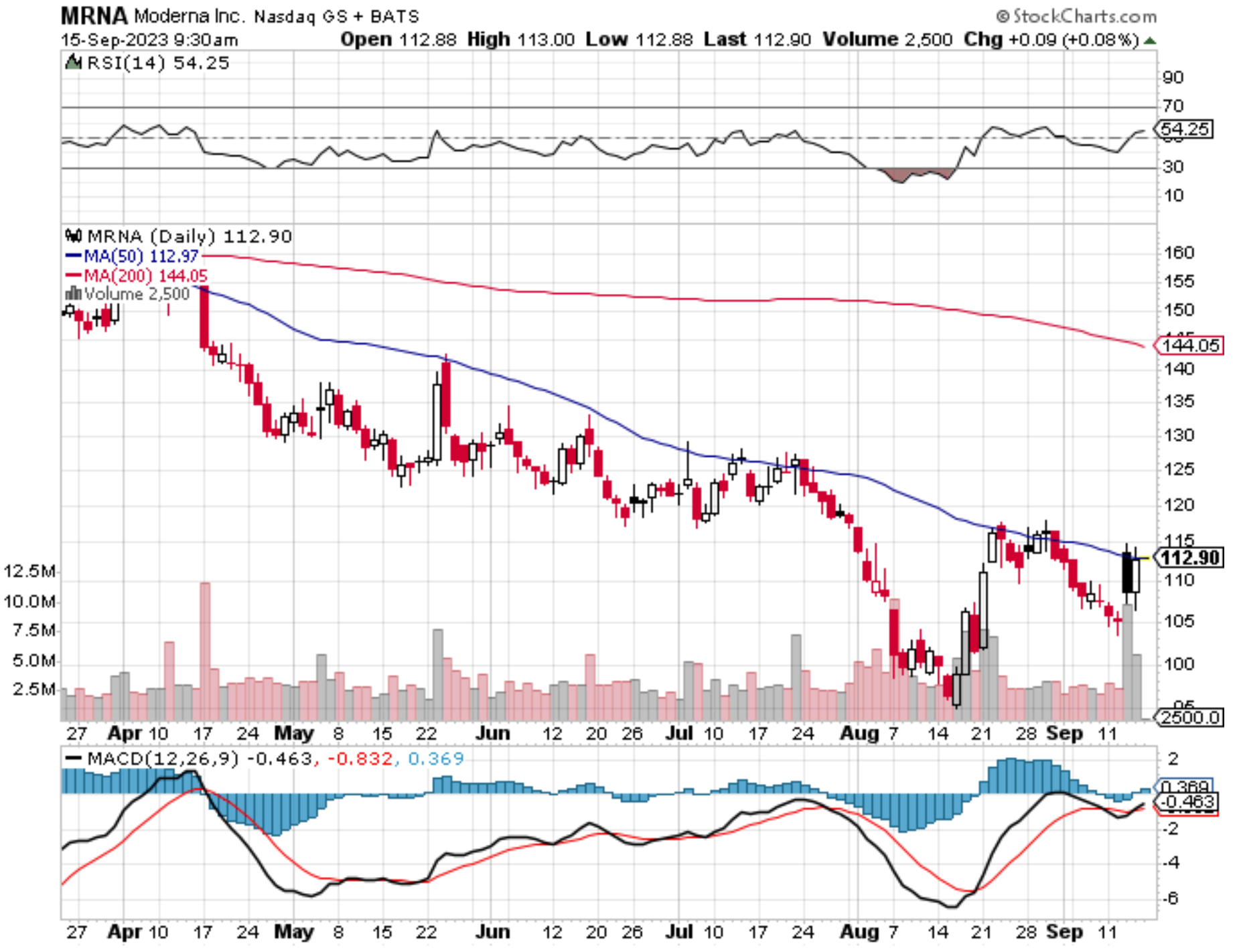A Shot at Hope
In a quaint Boston lab, as the first rays of dawn broke, a team of scientists, led by Moderna (MRNA), embarked on a mission. Their goal? To craft a solution to one of humanity's most persistent adversaries: cancer.
The grim reality remains that cancer is a leading cause of death in the United States. The statistics are daunting, with over 1.9 million new cases anticipated in 2023 and a projected death toll exceeding 600,000. The financial implications mirror this gravity, with costs expected to soar from $156 billion in 2018 to a staggering $246 billion by 2030.
As the world watched with bated breath, Moderna, already a household name for its COVID-19 vaccine, was silently weaving a narrative that could redefine the future of oncology.
Needless to say, the biotechnology sector, a realm of ceaseless innovation, has been abuzz with Moderna's latest venture. Earlier this month, the biotech announced its agreement with the German drug developer Immatics (IMTX) to develop cancer vaccines and therapies. As part of the deal, Moderna will pay $120 million in cash and will also make additional milestone payments.
This collaboration is not just about the financials; it's a beacon of hope for millions.
The partnership is set to merge Moderna's mRNA technology with Immatics’s T-cell receptor platform, focusing on various therapeutic modalities such as bispecifics, cell therapies, and cancer vaccines. Their combined research aims to leverage mRNA technology for in vivo expression of Immatics's half-life extended TCR bispecifics targeting cancer-specific HLA-presented peptides, among other innovative approaches.
With an upfront investment of $120 million, Moderna has made it clear: they're in it to win it. And the stakes? Potentially life-changing cancer vaccines.
However, this isn’t Moderna’s first foray into the realm of cancer treatments.
Building on the momentum of the technology of its highly potent COVID-19 shots, Moderna announced a partnership with Merck (MRK) earlier this year, combining their efforts to come up with treatments that can drastically reduce the spread of skin cancer. By leveraging Merck's Keytruda with its own innovative vaccine, Moderna has showcased the potential of such collaborations in advancing cancer treatment.
After all, the global community oncology services market is not just growing; it's clearly thriving.
From $47.95 billion in 2022 to a projected $53.79 billion in 2023, the numbers speak for themselves. By 2027, this figure is set to skyrocket to $81.33 billion. Such exponential growth underscores the immense potential and critical importance of advancements in oncology.
Yet, as expected, Moderna isn't the only player on the field.
Giants like Novartis (NVS) and Roche (RHHBY) have also thrown their hats in the ring, collaborating with known international cancer organizations to democratize access to cancer medicines. Among the myriad of promising stocks these days, though, Moderna, China’s BeiGene, Ltd. (BGNE), and the UK’s AstraZeneca PLC (AZN) shine the brightest.
Other notable contributors to the fight against cancer include Bristol Myers Squibb (BMY), Guardant Health (GH), Illumina (ILMN), and Pfizer (PFE). Their diverse portfolios and relentless pursuit of innovation are set to shape the future of oncology.
But as the curtains draw on this narrative, the spotlight remains firmly on Moderna. Their success with the COVID-19 vaccine has already etched their name in the annals of medical history. With their sights now set on cancer vaccines, the world waits with eager anticipation.
In the grand tapestry of medical advancements, Moderna's endeavors in the cancer vaccine domain promise to be a golden thread. Their journey, fraught with challenges and uncertainties, is proof of human resilience and ingenuity. As investors, we're not left standing on the sidelines watching history unfold; we're granted an active role in it.
The potential of Moderna's innovations in oncology beckons a promising horizon. For those looking to make a mark in the annals of medical investments, this biotech offers a gateway to the future of oncology. Act now, and be part of this groundbreaking narrative.


